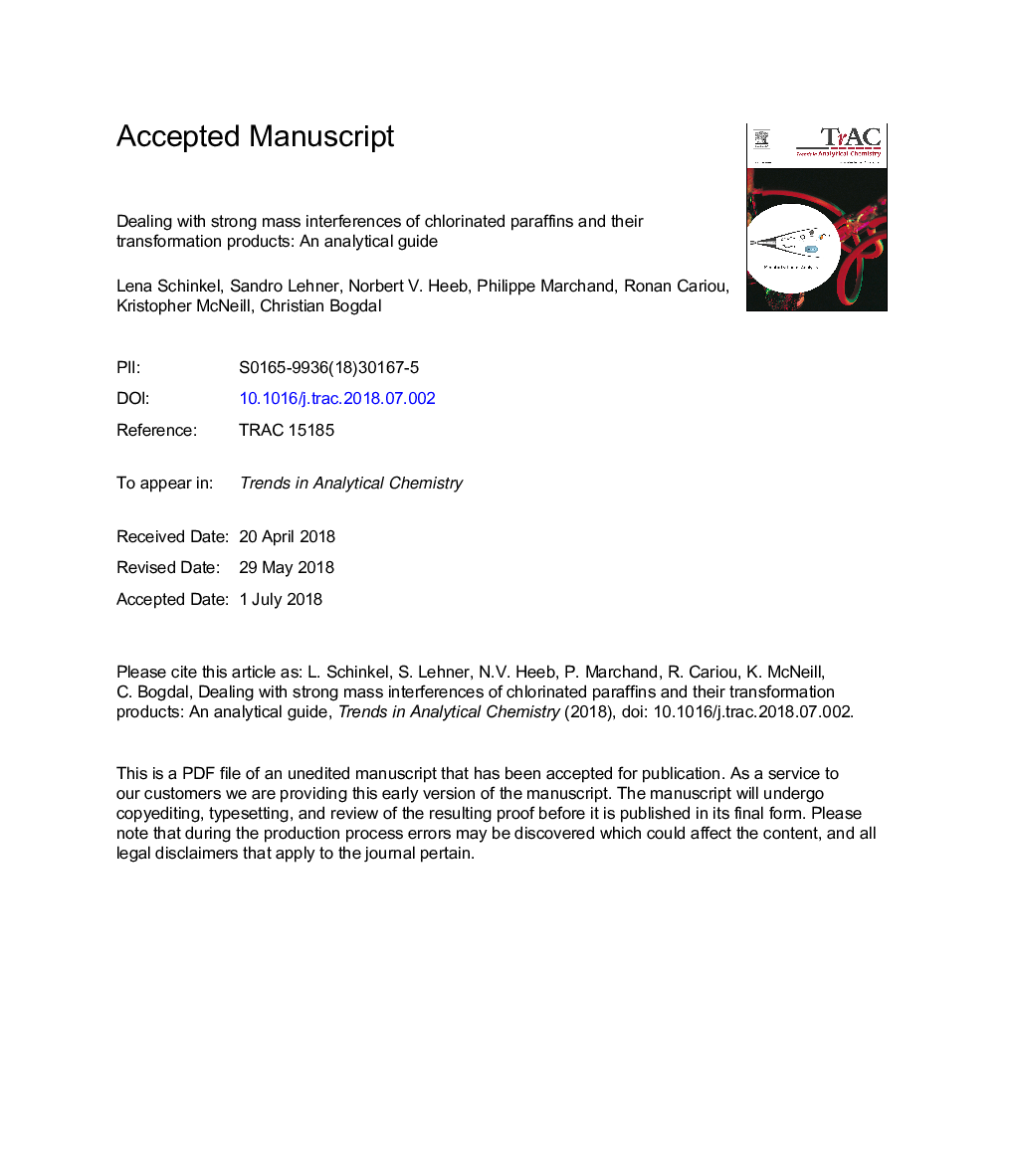| Article ID | Journal | Published Year | Pages | File Type |
|---|---|---|---|---|
| 7687367 | TrAC Trends in Analytical Chemistry | 2018 | 31 Pages |
Abstract
Chlorinated paraffins (CPs) are high production volume chemicals. Their analysis is demanding and becomes even more challenging in presence of CP transformation products. Chlorinated olefins (COs) are expected thermal CP transformation products that are present in technical CP products and in the environment. Thus, a specific analysis of CPs and COs is important. Commonly, CPs are analysed by gas chromatography electron capture negative ionisation mass spectrometry (GC-ECNI-MS). It was shown that GC-ECNI-MS suffers from in-source formation of COs. Further, selected ion monitoring can lead to false quantification of COs as CPs. Alternative methods based on liquid chromatography and soft ionisation techniques can solve the CP/CO problem. Non-interfered CP data is inevitable for CP transformation studies and non-biased degradation kinetics. Data about CP transformation is urgently needed, but respective studies are challenging. In here, we provided an analytical guide to deal with severe mass interferences of CPs and their transformation products.
Keywords
MCCPsESISCCPsCOScpsAPCIPersistent organic pollutants (POPs)DegradationIn-source fragmentationTransformationECNISIMMass spectrometryEICselected ion monitoringshort-chain chlorinated paraffinsChlorinated paraffinsextracted ion chromatogramelectrospray ionisationAtmospheric pressure chemical ionisation
Related Topics
Physical Sciences and Engineering
Chemistry
Analytical Chemistry
Authors
Lena Schinkel, Sandro Lehner, Norbert V. Heeb, Philippe Marchand, Ronan Cariou, Kristopher McNeill, Christian Bogdal,
